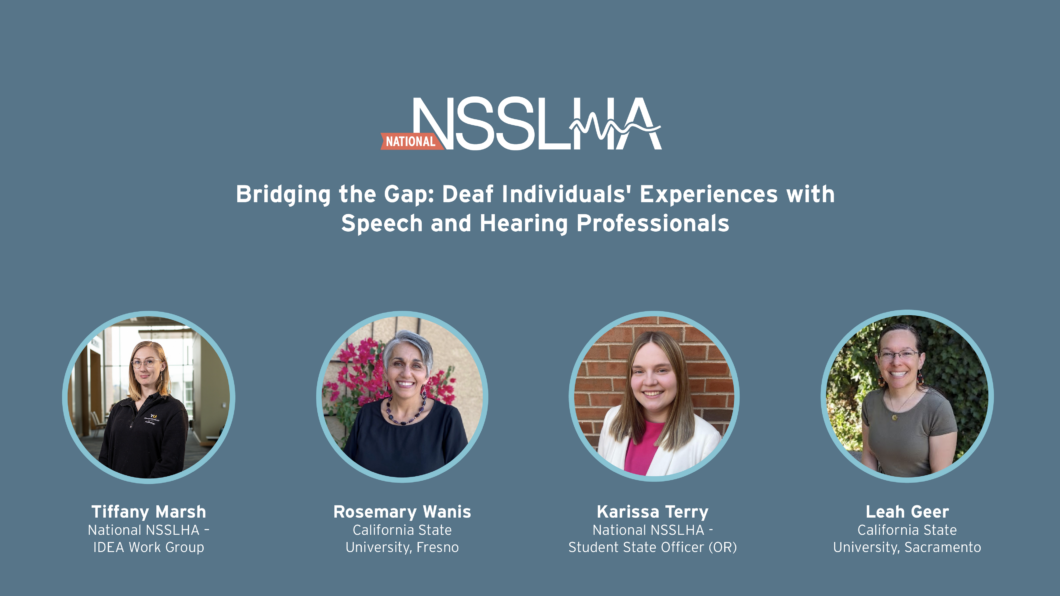In our recent video, three Deaf and hard of hearing individuals candidly share their experiences working with speech-language pathologists (SLPs) and audiologists. Their insights reveal important lessons for professionals in the field. Read below for the top five takeaways, and watch the video below:
1. Understanding Past Experiences
The interviewees discussed their varied encounters with SLPs and audiologists. They highlighted that supportive, attentive professionals significantly improved their care, while unhelpful practices often created barriers. Listening to these experiences is crucial for professionals aiming to enhance their approach.
2. The Impact of Professional Attitudes
Attitudes matter! The interviewees emphasized how the demeanor and approach of healthcare providers can profoundly influence their comfort and trust. A positive, respectful attitude fosters a better relationship, making it easier for Deaf individuals to engage in their care.
3. Essential Qualities and Skills
The participants outlined key qualities that professionals should possess, including patience, empathy, and effective communication skills. They stressed the importance of adaptability in tailoring communication methods to meet individual needs.
4. Cultural Competence is Key
Cultural awareness is vital in providing effective care. The interviewees underscored the need for professionals to understand and respect Deaf culture. This understanding fosters better communication and creates a more inclusive environment for care.
5. Emerging Practices for Better Care
The discussions also touched on innovative practices that could enhance care for Deaf individuals, such as incorporating technology and training in sign language for SLPs and audiologists. These advancements can bridge communication gaps and improve the overall patient experience.
By reflecting on these takeaways, future professionals can better understand the complexities of care within the Deaf community and work towards providing more effective, respectful, and inclusive services.

